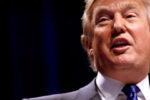Plast Eurasia Istanbul 2015, 25th International Istanbul Plastics Industry Fair
The four-day event, which runs from December 3rd-6th 2015, will take place at the Tüyap Fair Convention and Congress Center in Istanbul and is considered the most significant and extensive meeting of the plastics industry in Turkey and Eurasia. Now in its 25th year, Plast Eurasia Istanbul 2015 is ready to break records. Plast Eurasia Istanbul 2014 brought together the industry’s leading professionals and 1,067 companies and company representatives from 41 countries across a 98,000 m sq exhibition area indoor. A total of 43,756 industry professionals visited show last year. In 2015, there is scope for growth, as the exhibition area has been extended from 98,000 to 120,000 m sq, and in the first six months of the year 80 per cent of exhibition space has been already sold. Aiming to outstrip last year’s success, Plast Eurasia organisers have been implementing a decisive marketing strategy to capture the imaginations of exhibitors and visitors both at home and overseas. Industry professionals from target regions have also been kept informed about the fair through 11 offices in Turkey, six overseas offices and representatives operating in over 30 countries. The fair has been also been widely publicised across a range of media, from websites and magazines, to a successful outing at Plast 2015 in Milan, Italy in May. As a result of marketing activities implemented by Tüyap and supporter organizations, over 50,000 professionals are expected to visit the fair. Organised annually by Tüyap in cooperation with PAGEV (Turkish Plastics Industry Foundation), Plast Eurasia Istanbul will take place from December 3rd-6th, 2015 in Tüyap Fair Convention and Congress Center. For further information, please visit us: www.plasteurasia.com









